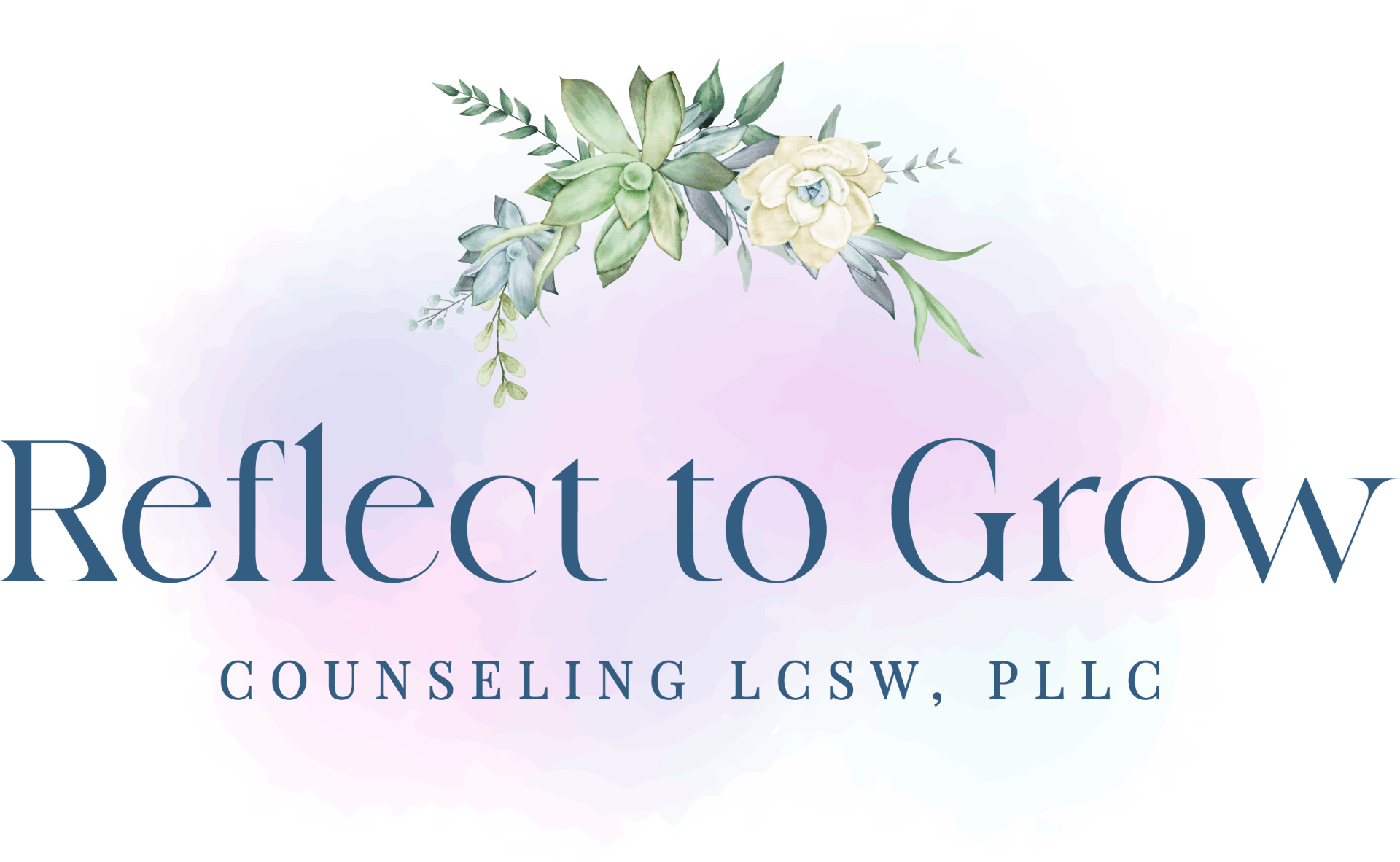The Therapeutic Benefits of Affirmations

Affirmations can profoundly impact mental health and well-being. This blog explores the therapeutic benefits of affirmations, what makes an affirmation beneficial, and provides ten practical examples to incorporate into your daily routine.
The Therapeutic Benefits of Affirmations
Affirmations are positive statements that challenge and counter negative thoughts. They offer numerous therapeutic benefits:
1. Boosting Self-Esteem and Confidence
Regular use of affirmations can enhance self-esteem and confidence. By repeating positive statements about yourself, you can counteract negative self-talk and reinforce their self-worth.
2. Reducing Stress and Anxiety
Affirmations can serve as a grounding technique and helps alleviate stress and anxiety. By focusing on positive outcomes and self-assuredness, individuals can reduce their overall stress levels and cultivate a sense of calm.
3. Promoting Positive Thinking and Resilience
Affirmations encourage a positive mindset. When faced with challenges, individuals who regularly use affirmations are more likely to approach situations with a problem-solving attitude rather than a defeatist one.
4. Enhancing Motivation and Performance
By fostering a positive self-image, affirmations can boost motivation and improve performance in various areas of life, including work, studies, and personal goals. Believing in your abilities can lead to increased effort and perseverance.
What Makes a Beneficial Affirmation?
Not all affirmations are created equal. To be effective, affirmations should adhere to specific criteria:
1. Positive and Present Tense
Affirmations should be framed in a positive manner and use present tense. For example, “I am confident” is more effective than “I will be confident.”
2. Believable and Realistic
While affirmations should be aspirational, they must also be believable. If the affirmation is too far from the current reality, it might be met with internal resistance. It’s crucial to find a balance that stretches one’s self-perception without breaking it.
3. Specific and Personal
Specificity increases the power of affirmations. Vague affirmations like “I am happy” are less impactful than specific ones like “I find joy in my daily activities.” Personalizing affirmations to reflect individual goals and values also enhances their effectiveness.
4. Emotionally Charged
Affirmations that evoke strong emotions are more likely to resonate and stick. The emotional component helps to reinforce the desired belief or behavior.
How to Create Your Own Affirmations
Creating personalized affirmations involves a few key steps:
Identify Areas for Improvement: Reflect on areas where you feel insecure or need improvement.
Frame Positively: Turn negative statements into positive ones. Be careful not to simply negate your negative thoughts. For example, use “I am intelligent” instead of “I am not dumb.”
Use Present Tense: Phrase your affirmations as if they are already true.
Keep It Short: Short and simple affirmations are easier to remember and repeat.
Ten Beneficial Affirmations to Use Daily
Here are ten examples of effective affirmations that you can incorporate into your daily routine:
“I am worthy of love and respect.” This affirmation helps to foster self-love and respect, which is important for healthy relationships and self-esteem.
“I am capable of achieving my goals.” Boosts confidence in one’s abilities and encourages a proactive approach towards goal attainment.
“I am resilient and can overcome any challenge.” Reinforces the belief in one’s resilience and ability to navigate difficulties.
“I am in control of my thoughts and emotions.” Promotes emotional regulation and mindfulness.
“I deserve happiness and success.” Challenges limiting beliefs and encourages a positive outlook towards personal and professional achievements.
“I am grateful for all that I have.” Fosters gratitude, which is linked to increased happiness and well-being.
“I am constantly growing and improving.” Encourages a growth mindset and continuous self-improvement.
“I am surrounded by positive and supportive people.” Reinforces the importance of a supportive social network and attracts positive relationships.
“I trust myself and my decisions.” Builds self-trust and reduces anxiety related to decision-making.
“I am at peace with my past and excited for my future.” Promotes acceptance of the past and optimism for the future.
Feel free to use any of the above examples and personalize them to fit your own individual needs.
How to Incorporate Affirmations into Your Daily Routine
To maximize the benefits of affirmations, consistency is key. Here are some strategies to help you integrate affirmations into your daily life:
1. Morning Routine
Start your day with affirmations to set a positive tone. Repeat your affirmations while getting ready or during meditation.
2. Written Affirmations
Writing down affirmations can be powerful. Keep a journal and write your affirmations daily, or use sticky notes and place them where you’ll see them frequently, such as on your mirror or computer.
3. Affirmation Apps
There are various apps designed to help you practice affirmations. These apps can send you daily reminders and provide new affirmations to keep your practice fresh and engaging.
4. Mindfulness and Meditation
Incorporate affirmations into your mindfulness or meditation practice. Repeat your affirmations silently during your meditation sessions to deepen their impact.
5. Visual Cues
Use visual cues like vision boards or inspirational quotes around your living space. These cues can serve as constant reminders of your affirmations.
Scientific Evidence Supporting Affirmations
The efficacy of affirmations is supported by various scientific studies. Here are a few key findings:
1. Neuroplasticity
Affirmations can rewire the brain through neuroplasticity. Regular repetition of positive statements can strengthen neural pathways associated with positive thinking, making it easier to adopt a positive mindset over time.
2. Stress Reduction
Research indicates that affirmations can reduce stress by promoting a positive self-view. A study published in “Social Cognitive and Affective Neuroscience” found that self-affirmation activates brain regions associated with self-processing and reward, thereby reducing stress.
3. Improved Performance
Studies have shown that affirmations can improve performance in various domains. For instance, a study in the “Journal of Experimental Social Psychology” found that self-affirmations improved academic performance among students by mitigating the effects of stress.
Overcoming Challenges with Affirmations
Despite their benefits, some individuals may find it challenging to adopt affirmations. Here are a few common obstacles and ways to overcome them:
1. Skepticism
It’s natural to feel skeptical about affirmations, especially if they seem unrealistic. Start with affirmations that are more believable and gradually work your way up to more ambitious ones.
2. Inconsistency
Consistency is crucial for affirmations to be effective. Set reminders and incorporate affirmations into your daily routine to build a consistent practice.
3. Negative Self-Talk
Negative self-talk can undermine the effectiveness of affirmations. When negative thoughts arise, acknowledge them and counteract them with positive affirmations.
Conclusion
Affirmations are a powerful therapeutic tool that can enhance mental well-being, reduce stress, and boost confidence and resilience. By understanding what makes an affirmation beneficial and how to incorporate them into your daily life, you can harness their full potential. Start with the ten examples provided and watch as these simple statements transform your mindset and overall quality of life.
Affirmations are more than just words; they are a commitment to a positive and fulfilling life. Embrace the practice of affirmations and unlock the door to a healthier, happier you.
As part of our commitment to transparency, we disclose that this post was created with the help of an AI model. We edited the content for accuracy and clarity.
